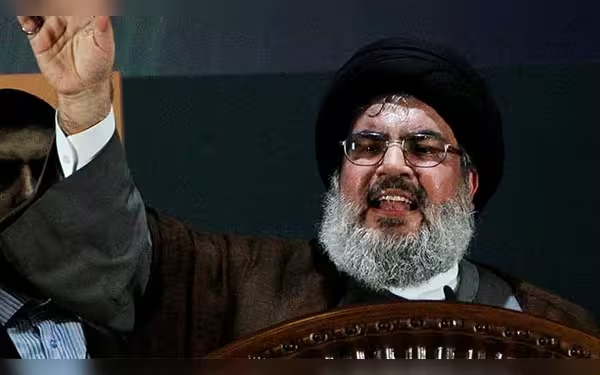Saturday, November 16, 2024 05:43 PM
Hassan Nasrallah Killed in Israeli Airstrike
- Hezbollah leader Hassan Nasrallah reportedly killed in airstrike.
- Significant escalation in Israel-Hezbollah conflict anticipated.
- Power vacuum within Hezbollah raises concerns for regional stability.
 Image Credits: gnnhd
Image Credits: gnnhdHezbollah leader Hassan Nasrallah killed in Israeli airstrike, raising concerns over regional stability and future of the group.
In a shocking turn of events, the leader of Hezbollah, Sayyed Hassan Nasrallah, has reportedly been killed in an Israeli airstrike. This news has sent ripples through the Middle East, as Nasrallah has been a prominent figure in the region for many years. The Israeli military announced that the strike took place on September 27, targeting Hezbollah's underground headquarters located in Dahiyeh, a suburb of Beirut.
Hezbollah, a group known for its resistance against Israel, confirmed the death of Nasrallah on Saturday. Alongside him, another high-ranking official, Ali Karaki, and several other commanders were also reported to have lost their lives in the attack. This incident marks a significant escalation in the ongoing conflict between Israel and Hezbollah, a group that has been involved in numerous confrontations with Israeli forces over the years.
The implications of Nasrallah's death could be profound. As the face of Hezbollah, he has been a key player in shaping the group's strategies and policies. His leadership has been characterized by a strong anti-Israel stance, and his absence may lead to a power vacuum within the organization. This could potentially alter the dynamics of the conflict in the region, as Hezbollah may struggle to maintain its influence without its charismatic leader.
Moreover, the timing of this strike raises questions about the future of Israeli-Hezbollah relations. With tensions already high, this incident could lead to further retaliatory actions from Hezbollah, which may escalate into a broader conflict. The international community is watching closely, as the situation remains volatile.
The death of Sayyed Hassan Nasrallah is a pivotal moment in the ongoing struggle between Israel and Hezbollah. It not only marks the loss of a significant leader but also poses questions about the future of the group and the stability of the region. As events unfold, it is crucial for observers to consider the potential ramifications of this incident on both local and international scales. The world waits to see how Hezbollah will respond and what this means for peace in the Middle East.













